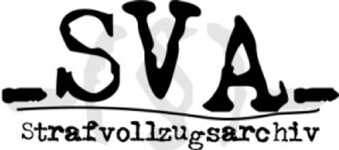Teaching
practice- and project oriented
From its beginning the Prison Archive was dedicated to practice orientated teaching and teaching projects. The closest connection exists to the legal clinic at the University Bremen, Faculty of Law. It offers legal advice by students and lawyers to prisoners in prisons for men, for women, for juveniles, in pretrial detention, in a forensic psychiatric institution and in deportation detention. It is the oldest legal clinic in Germany established by Johannes Feest and others in the 1970ies. The lectures at the University of Bremen that are connected to the legal clinic are given by Christine Graebsch, Christina Lederer and Johannes Feest. Instead of contributing to legal advice in institutions in Bremen, students can also choose to join the Prison Archive in writing answers to letters of prisoners requesting legal advice.
Legal Clinic at the University of Bremen
A particularly close connections exists to the “Verein für Rechtshilfe im Justizvollzug des Landes Bremen e.V.” (Association for legal aid in the penal system of the state of Bremen e.V.). In co-operation of this association with the University of Bremen, law department, legal advice is offered to inmates within the Bremen prisons (men’s penal system, women’s penal system, pre-trial detention, juvenile execution, forensic psychiatry, deportation detention).
The respective class at the University starts every year with a course introducing the participants to basic topics of legal advice in prison. The advice is provided by today’s students in cooperation with lawyers and other jurists.
The consultation emerged in 1977 from a university project of single-phase legal education at the University of Bremen. It is the first and oldest legal clinic in Germany.
The associated course at the University of Bremen is being conducted by Christina Lederer, Christine Graebsch and Johannes Feest.
It initially consists of an annual course. The course introduces basic practical topics of legal advice. By participating in the consultation and in the course, students can provide evidence of a key qualification within the law school. Optionally, the following semester may be followed by participation in a seminar that primarily discusses extramarital contents related to the subject of prison (criminology, legal sociology, legal philosophy, etc.). Students can acquire proof of proficiency in the fundamentals of law or in criminal law through the preparation of seminar papers and presentations.
Among other things, the cooperation with the Prison Archive means that students can participate in the written consultation in addition to counseling in prisons.
More about the Courses at the Legal Clinic Bremen >
Publications about the Legal Clinic at the University of Bremen:
- Graebsch, Christine (2015): Rechtsberatung für Gefangene im Jugendvollzug.
In: Zeitschrift für Jugendkriminalrecht und Jugendhilfe (ZJJ), Heft 4, 2015, S. 363-368. - Graebsch, Christine (2013): Rechtsberatung für Gefangene als Legal Clinic – Vorstellung eines seit über 30 Jahren existierenden Praxisprojekts an der Universität Bremen.
In: studere – Rechtszeitschrift der Universität Potsdam Heft 11 2013, S. 64-69. - Graebsch, Christine (2011): Rechtsberatung für Gefangene in Bremen: Clinical Legal Education seit mehr als 30 Jahren.
In: Praktische Jurisprudenz, Hrsg.: Stefan Barton/ Susanne Hähnchen/ Fritz Jost, Hamburg 2011. - Graebsch, Christine/Schäfer, Manuela/Bruns, Martina (2005): Der Verein für Rechtshilfe: Kostenlose Gefangenenberatung und praxisbezogene Juristenausbildung.
In: Korrespondenzen in Sachen Strafvollzug, Rechtskulturen, Kriminalpolitik, Menschenrechte. Ein Lese-Theater als Feestschrift, Hrsg.: Sven-U. Burkhardt/Christine Graebsch/Helmut Pollähne, Münster, S. 265-275.
In addition to the connection with the University of Bremen, there are other more indirect links to teaching at other universities. There, the gain in knowledge gained from the correspondence of the penitentiary archive and its research is a central subject of the doctrine.
Professional MA in Criminology
at the University of Hamburg
As part of this Master’s degree, Johannes Feest (until 2011) and Christine Graebsch (since 2012) teach the Module “Kontrollpolitik II: Strafjustiz/-vollzug” (Control Policy II: Criminal Justice / Execution). The students of the further education master themselves come from criminology-related professional practice. Thanks to the insight into the legal reality of the penal and penal system provided by the prison library, teaching also includes practical elements.
Bachelor Degree Social Work at Dortmund University of Applied Sciences and Arts
At the Dortmund University of Applied Sciences, the insights from research and advice provided by the Prison Archive serve as the basis for courses in the area of offender support. This applies in particular to the specialization module K 11 “Straffälligenhilfe” (“offender support”) offered by Christine Graebsch together with Peter Kirchhoff. Within this framework, students carry out their own practical project. They offer one-to-one talks or group work with prisoners or detainees in one of the cooperating detention centers in cooperation with a provider of free offender support. The teaching in dealing with the experiences of the students in their project is fed back with insights from the Prison Archive. In addition, the findings mentioned above are also included in the regular Bachelor’s degree programs in the area of criminal law / criminology, which are mainly offered by Sven-U. Burkhardt.
At the Fachhochschule Dortmund there is also a Legal Clinic in the dual bachelor program Social Work with a focus on “poverty and (refugee) migration”. Although the Legal Clinic is not focused on prison, but on migration law. However, it served the Bremen Legal Clinic as a role model with thematic overlap in the field of deportation detention. The consultation takes place in co-operation with the association Legal Clinic Dortmund e.V. It is integrated into several modules of the curriculum.
Students who focus on working in the migration legal clinic can receive a certificate at the end of their studies.
Under the terms of the Legal Services Act of 2008, numerous legal clinics have sprung up in Germany, especially Refugee Law Clinics. However, the Legal Clinic at the FH Dortmund may be the only one in which student legal advice is embedded in the study of social work.
